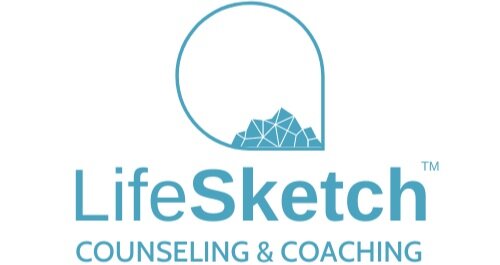You’ve Been Told Money Doesn’t Buy Happiness — Here’s What It Actually Buys (Especially with ADHD)
If you’re navigating life with ADHD, you know the constant juggling act all too well—scattered focus, missed deadlines, and that nagging sense of playing catch-up. And if you’re in your 30s, 40s, or 50s, with a college degree and a background of success, feeling stuck despite your achievements can be deeply frustrating. You’ve likely heard the old adage: “Money doesn’t buy happiness.” But what if that’s not the full story? For those with ADHD, money isn’t just currency—it’s a tool that can create breathing room, reduce chaos, and open doors to a more balanced life.
In this post, we’ll explore our society’s complicated relationship with money, debunk the happiness plateau myth, and dive into research-backed benefits of higher income. We’ll also break down how money acts as a practical tool for ADHD brains, offering capacity, solutions, and choices. Finally, we’ll address the catch: money is essential but not sufficient without alignment in your career. If you’re ready to rethink how income fits into your ADHD journey, let’s get started.
Our Complex Relationship with Money: A Tug-of-War Across Generations
Our views on money are shaped by a messy cultural landscape. Post-Baby Boomer generations—Millennials, Gen Z, and Gen X—have witnessed corporate greed, social envy, and the downsides of profit-driven motives. We’ve navigated recessions, rising costs, and financial uncertainty, leaving many skeptical about wealth. Yet, money remains a tool, not the enemy.
For those with ADHD, this tension hits harder. The “ADHD tax”—those hidden costs from forgotten bills, lost items, or impulsive spending—adds financial strain on top of everyday challenges. Research shows adults with ADHD face higher financial strain due to lower earnings and education. Studies estimate lifetime earnings losses up to $1.27 million for men with childhood ADHD.
If you’re from a successful background but still feel lost, you’re not alone. ADHD can amplify that sense of being one step behind, even with the drive and smarts to succeed. So, where does money fit? It’s not about extravagance—it’s about building capacity for your time, attention, and energy, reducing daily chaos, and gaining control.
Debunking the Happiness Plateau: Research Shows Well-Being Rises with Income
The idea that happiness plateaus after a certain income—around $75,000—has been popular, but recent research tells a different story. A 2021 Wharton study by Matthew Killingsworth found experienced well-being rises with income, even above $75,000, based on over 1.7 million reports from 33,000 US adults. There’s no plateau; higher income provides control over life, easing struggles—crucial for ADHD.
While downsides like social stigma or pressure exist, the benefits outweigh them for most. For ADHD individuals, higher income buffers against the “tax” and supports better management of symptoms.
Research-Backed Benefits: How Higher Income Boosts Well-Being for ADHD
Higher income delivers tangible advantages, backed by data, especially valuable for ADHD:
Career Satisfaction: Roles aligning with ADHD strengths reduce burnout. A Pew study shows 54% of higher-income workers are highly satisfied vs. 41% lower-income.
Life Expectancy: Financial security lowers stress, linked to longer life. CDC data ties heavy stress to shorter expectancy; chronic stress can reduce lifespan by 2.8 years.
Mental Health: Access to therapy/coaching manages ADHD. Higher income correlates with better emotional well-being; financial stress raises depression/anxiety risk.
Stronger Relationships: Less strain means fewer conflicts. Journal of Family Psychology shows economic pressure harms marital quality; higher SES moderates positively.
Better Social Connections and Fitness: Funds for activities strengthen friendships; resources for gyms/trainers improve health. Higher income links to better activity and happiness.
These benefits create a buffer against ADHD’s daily toll, fostering stability and growth.
Money as a Tool: Building Capacity, Solving Problems, and Creating Balance
For ADHD, money serves three key functions:
Building Capacity: Your resources—time, attention, energy—are stretched thin. Higher income outsources tasks like cleaning or meal prep, freeing mental space. Imagine hiring help to handle what overwhelms you.
Solving Problems: Addresses the ADHD tax with tools like apps or coaching. Clients shift from chaos to stability by investing in solutions.
Creating Balance: Stability reduces anxiety, prioritizing health. SES improvements positively affect health; less stress means sustainable energy.
In my coaching, clients use income to design lives that work with ADHD, moving from overwhelm to empowerment.
Money Buys Choices: Designing a Life That Fits Your ADHD Brain
Higher income provides choices—invaluable for ADHD:
Autonomy: Flexible schedules like remote work or family time reduce chaos. Pedometer studies show higher income links to better activity.
Satisfying Work: Meaningful roles leveraging strengths. Income boosts life satisfaction evaluations.
Investing in Growth: School or coaching levels up skills. Higher income correlates with better emotional well-being.
These choices let you blueprint a life fitting ADHD, as seen in my Job Search Accelerator clients.
The Catch: Money Is Required but Not Sufficient
Money’s a tool, but not the toolbox. If your career feels misaligned, no salary fills that gap. Combining income with meaningful work—leveraging strengths and fitting your ADHD brain—is key to transformation.
In my ADHD Career Change program, we focus on alignment for lasting fulfillment.
Ready to Take Control? Let’s Break Free from Feeling Stuck
Financial strain doesn’t have to define your ADHD journey. By rethinking money as a tool, you can build capacity, reduce anxiety, and create choices. What’s one way higher income could create breathing room for you?
If you’re ready to align your career, earn what you deserve, and thrive with ADHD, explore my programs.
Book a FREE call for ADHD Career Change or Job Search Accelerator—hybrid life and career coaching programs designed for professionals like you!
You deserve a life that works. Let’s make it happen.

